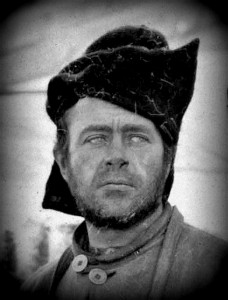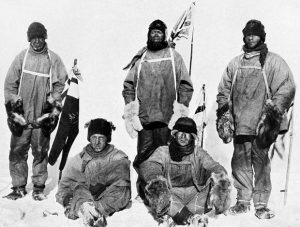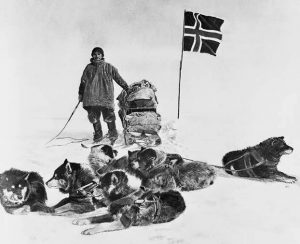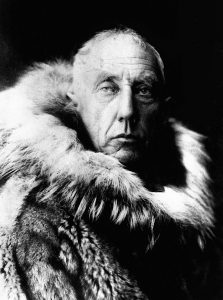
 Competition is the driving force behind so many accomplishments, especially world records. On January 18, 1912, after a two-month ordeal, the expedition of British explorer Robert Falcon Scott arrived at the South Pole. Scott was a British naval officer, who began his first Antarctic expedition in 1901 aboard the Discovery. Scott spent three years exploring the area and discovered the Edward VII Peninsula, surveyed the coast of Victoria Land…which were both areas of Antarctica on the Ross Sea, and led limited expeditions into the continent itself.
Competition is the driving force behind so many accomplishments, especially world records. On January 18, 1912, after a two-month ordeal, the expedition of British explorer Robert Falcon Scott arrived at the South Pole. Scott was a British naval officer, who began his first Antarctic expedition in 1901 aboard the Discovery. Scott spent three years exploring the area and discovered the Edward VII Peninsula, surveyed the coast of Victoria Land…which were both areas of Antarctica on the Ross Sea, and led limited expeditions into the continent itself.
Soon, skirting the fringes of Antarctica was not enough, and others had taken an interest in the area too. So, in 1911, Scott and Norwegian explorer, Roald Amundsen began an “undeclared” race to the South Pole. While it was “undeclared,” it was no less a competition, and both men knew it. Sailing his ship into Antarctica’s Bay of Whales, Amundsen set up base camp 60 miles closer to the pole than Scott. In October, both explorers set off. Amundsen was using sleigh dogs and Scott used Siberian motor sledges, Siberian ponies, and dogs. Scott’s journey was fraught with mishaps. The motor sleds broke down, the ponies had to be shot, and the dog teams were sent back as Scott and four companions continued on foot. Nothing was going according to plan.
Nevertheless, on January 18, 1912, Scott’s group finally reached the pole…only to find that Amundsen had preceded them by over a month. Amundsen’s expedition won the race to the pole on December 14, 1911. Encountering good weather on their return trip, they safely reached their base camp in late January. For Scott, 
 it was a day of mixed feelings, I’m sure. They made it to the pole, but they came in second. The return trip was not going to be much better, but it had to be made. The weather was exceptionally bad, and two members of the team died on the journey back to their base camp. Scott and the other two survivors were trapped in their tent by a storm, when they were just 11 miles from their base camp. Scott, who kept a journal of the trip, like most explorers did, wrote a final entry in his diary in late March. The frozen bodies of he and his two compatriots were recovered eight months later. It was a sad ending to their horrific trip.
it was a day of mixed feelings, I’m sure. They made it to the pole, but they came in second. The return trip was not going to be much better, but it had to be made. The weather was exceptionally bad, and two members of the team died on the journey back to their base camp. Scott and the other two survivors were trapped in their tent by a storm, when they were just 11 miles from their base camp. Scott, who kept a journal of the trip, like most explorers did, wrote a final entry in his diary in late March. The frozen bodies of he and his two compatriots were recovered eight months later. It was a sad ending to their horrific trip.


One Response to Coming In Second